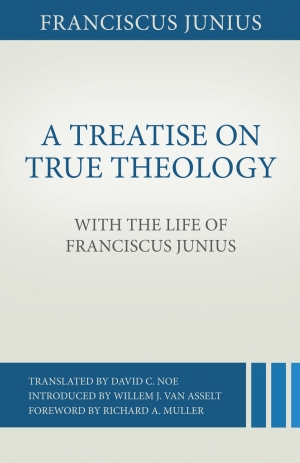Wes has some helpful source material on this topic. He begins with a survey on my chapter on the distinction between theology as God knows it (theologia archetypa) and theology as it is revealed to us (theologia ectypa). In the second half of . . . Continue reading →
categorical distinction
What Can We Know And How?
During the Watergate hearings, Senator Howard Baker asked, “What did the President know, and when did he know it?” However important that question was in the politics of 1973, it remains an important question in theology today. A friend writes to ask . . . Continue reading →
The Categorical Distinction in Berkhof
Thanks to Brandon for highlighting this passage in Berkhof (under the Doctrine of God). There’s an entire chapter on this topic in RRC.
Bavinck on the Categorical Distinction
Thanks to Brandon Wilkins for more good stuff on this essential biblical, Christian, and Reformed distinction.
Only God is Self-Sufficient
Martin Downes is reading Van Til: If one does not make human knowledge wholly dependent upon the original self-knowledge and consequent revelation of God to man, then man will have to seek knowledge within himself as the final reference point.
Berkhof On The Creator/Creature Distinction
Alongside of the archetypal knowledge of God, found in God Himself, there is also an ectypal knowledge of Him, given to man by revelation. The latter is related to the former as a copy is to the original, and therefore does not . . . Continue reading →
Christian Doctrinal Interpretations Vs. Joseph Smith’s Revelations
These passages can be interpreted in different ways. Yet by viewing them through the clarifying lens of revelations received by Joseph Smith, Latter-day Saints see these scriptures as straightforward expressions of humanity’s divine nature and potential. Many other Christians read the same . . . Continue reading →
Providence (3): The “As It Were” Principle
In part 2 we considered the biblical and confessional Reformed teaching that the triune God is actively present, sustaining and governing all that is. In our account of the doctrine of providence we use an interesting little expression that is freighted with . . . Continue reading →
Now In English: Junius On True Theology
Lambert Daneau (1530–95) described Franciscus Junius as “a man of singular learning”—and that he was. His biblical scholarship was cited widely by writers from a variety of traditions in the sixteenth and seventeenth centuries. His influence on the Reformed tradition has been . . . Continue reading →
Junius: There Are Two Kinds Of Theology
Now indeed these two kinds of theology are so different that they cannot truthfully be related to some one, definite head and shared genus. Of course the first kind of theology, which we have named divine and a prototype, does not belong . . . Continue reading →
Protestant Basics: The Theologian Of The Cross Versus The Theologian Of Glory
19. One is not worthy to be called a theologian (theologus) who looks upon the “invisible things of God” [invisibilia Dei; Rom. 1:20] as though they were clearly “perceptible in those things which have actually happened” [1 Cor 1:21–25] 20. But who . . . Continue reading →
Heidelcast 123: I Am That I Am (1)—The Categorical Distinction
This is the 1st episode of our series on the doctrine of God, ““I AM That I AM.” In older histories of theology it used to be said of the Reformed that they started with the divine decree and deduced (i.e., drew . . . Continue reading →
Heidelcast 124: I Am That I Am (2)—The Categorical Distinction
The Creator/creature distinction is fundamental to Christian theology. The Ancient Christian church defended it against the pagan doctrine of the eternality of matter. Scripture is very clear: “In the beginning God…”. On this point, the classical, confessional Reformed theologians built their distinction . . . Continue reading →
Heidelcast 125: I Am That I Am (3)—More On The Categorical Distinction
So far in this series we have been talking about what I call the categorical distinction, i.e., the Creator/creature distinction. At the 1518 Heidelberg Disputation Martin Luther unveiled what he called his theology of the cross, (theologia crucis) against what he described . . . Continue reading →
Heidelcast Series: I Am That I Am
This is the complete Heidelcast series (16 episodes) on the doctrine of God: I AM That I AM. Continue reading →
You Are Not God. You Do Not Speak Things Into Existence
Holy Scripture teaches us that God spoke “in the beginning” out of nothing (ex nihilo) to create all things that are by the power of his Word. Continue reading
Laying the Foundation…. Twice
Where do we begin in our theology? The answer may seem obvious: We begin with God. Theology, after all, is talking about God; that’s literally what the word means. But things get a little more complicated when we get around to developing . . . Continue reading →
What Can We Know And How?
During the Watergate hearings, Senator Howard Baker asked, “What did the President know, and when did he know it?” However important that question was in the politics of 1973, it remains an important question in theology today. A friend writes to ask . . . Continue reading →






